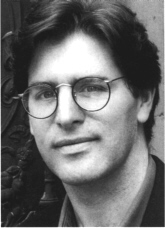



(+ a site with some additional info)
(+ an unofficial Alasdair Gray site)
| Authors | Work | Sessions | Secondary literature |
Notes |
| Iain Banks | The Crow Road
(1992) - quotes |
3/2: Ch. 1-10 10/2: Ch. 11 - end |
Speak for Scotland Iain Banks and the Fiction Factory (copy) |
Session
1 |
| Andrew Crumey | Mr. Mee (2000) - Rouseau's Confessions as intertext |
17/2: Ch. 1-7 24/2: Ch 8 - end |
Mr. Mee reviews Interview with Crumey |
Session
3 Session 4 |
| Christopher Brookmyre | Quite
Ugly
One Morning (1996) - Influences on Brookmyre |
3/3: Ch. 1-17 10/3: Ch. 18 - end |
Pulp Fiction Brookmyre interview |
Session
5 Session 6 |
| Alasdair Gray | Poor Things (1992) | 31/3: Ch. 1-13 7/4 : Ch. 14 - end |
Bell, book, and candle Bella and the Beast (copy) |
Session
7 Session 8 |
 |
 |
 |
 |
| Iain Banks | Andrew Crumey | Chris
Brookmyre (+ a site with some additional info) |
Alasdair
Gray (+ an unofficial Alasdair Gray site) |